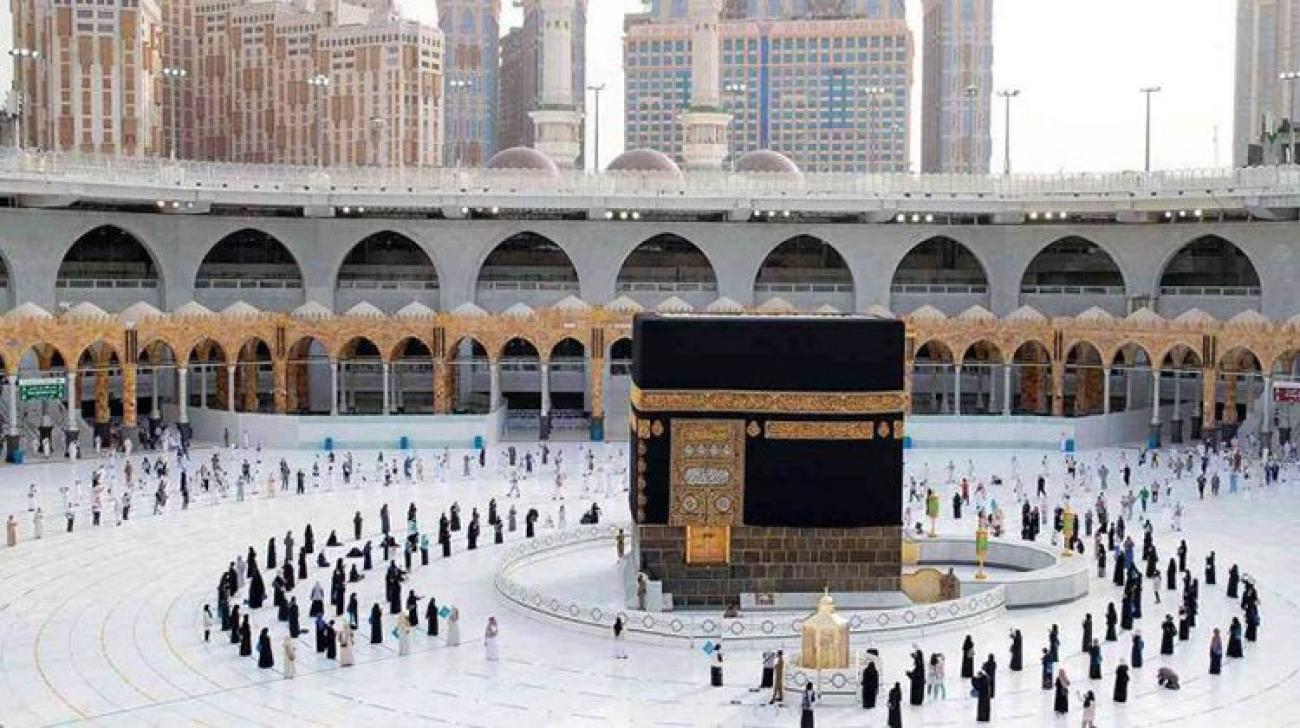Hajj 2021: Successful and Safe Hajj Season During the COVID-19 Pandemic

Saudi Arabia has applied innovative technology procedures to protect pilgrims’ health during this year’s hajj.
Cairo/Riyadh, 29 July 2021 – As the hajj season for 2021 concludes, WHO’s Regional Office for the Eastern Mediterranean acknowledges the efforts of Saudi Arabia in successfully implementating health and safety measures amid the COVID-19 pandemic resullting in no cases of COVID-19 or other illnesses reported among pilgrims.
“This year’s hajj came at a critical time in which cases are increasing across the Region and globally, calling for stricter procedures to prevent spread. We welcome all mitigation measures put in place by Saudi Arabia to ensure a safe hajj season without COVID-19 infections reported,” said Dr Ahmed Al-Mandhari, WHO Regional Director for the Eastern Mediterranean.
Saudi Arabia has applied innovative technology procedures to protect pilgrims’ health during this year’s hajj. Electronic cards, which registered the pilgrim’s contact and all medical details, were used to provide access to all religious sites, accommodation, and transport, as well as facilitate the job of health authorities to identify crowded areas at all sites. In addition, Saudi Arabia used electronic robots to prevent physical contact and disperse physical gatherings. Robots were also used to distribute bottled water and to help keep religious sites well sanitized.
In addition, the Ministry of Health enforced strict physical distancing measures during the transitioning of pilgrims in the 2 Holy Mosques and the central area in Makkah and Madinah. These measures also were applied in all residential buildings and tents.
These extra precautions have entailed limiting the number of pilgrims to 60 000 between the ages of 18 to 65 with no serious health conditions. The pilgrims were either fully vaccinated, previously recovered from COVID-19, or received one vaccine shot 14 days before the hajj to protect them and avoid any crowding that could contribute to the spread of infection. The decision is based on risk assessment of the pandemic and the evolving epidemiology nationally, regionally, and globally.
“WHO greatly appreciates the high level of coordination and collaboration that was adopted by all sectors throughout the hajj season, using a collaborative and multisectoral approach. The Saudi Ministry of Health and WHO are in continuous dialogue and cooperation on all fronts related to the COVID-19 response,” said Dr Ibrahim El-Ziq, WHO Representative in Saudi Arabia.
For more information, please contact:
Dr Ibrahim El-Ziq
WHO Representative in Saudi Arabia
Mobile: +966500066147
Email address: elziqi@who.int

